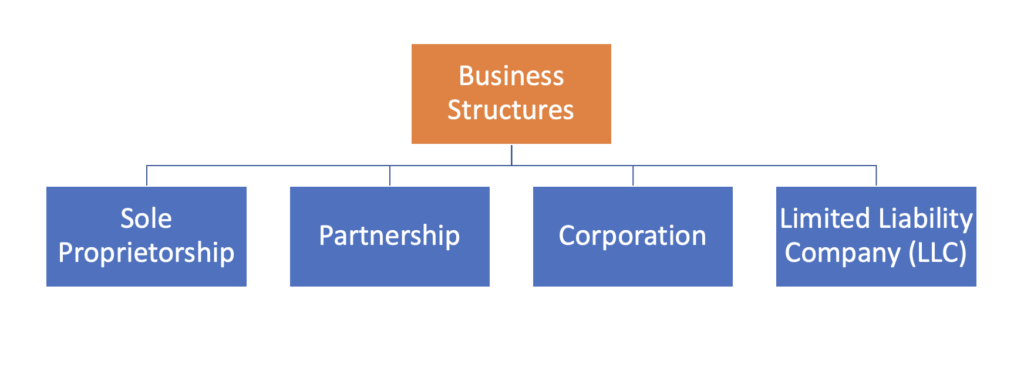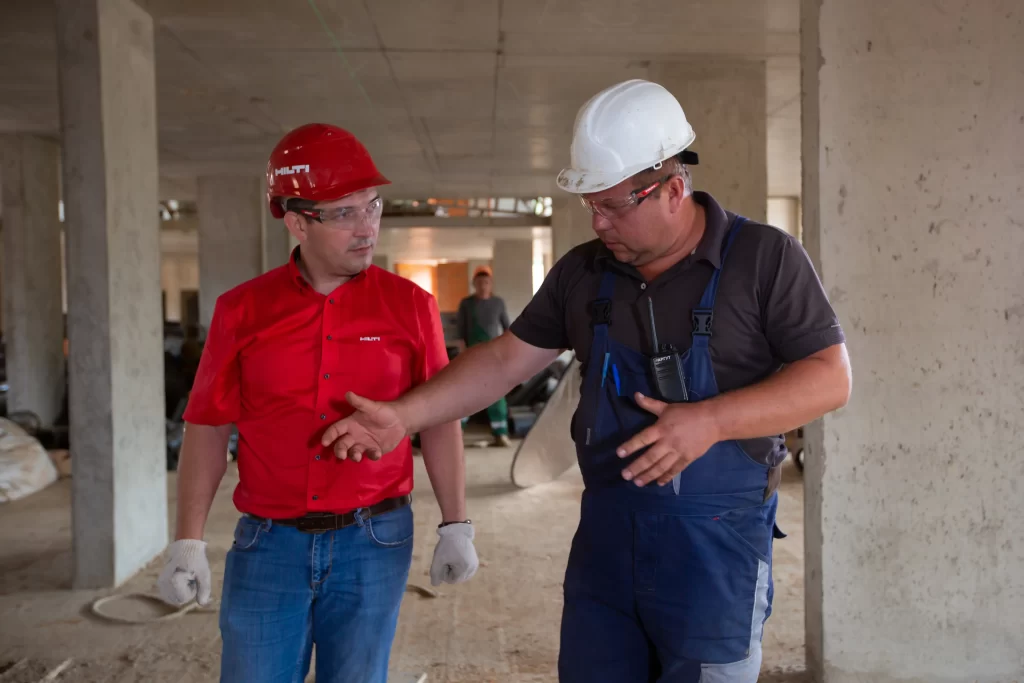In a world where progress and development continuously shape our surroundings, the demand for excavation services remains steadfast. As we forge ahead into 2024, the landscape presents a myriad of opportunities for aspiring entrepreneurs to carve their paths in the excavation industry.
Whether you possess a passion for unearthing hidden treasures or possess a vision for shaping the earth to bring forth new structures, starting an excavation business can be a fulfilling and financially rewarding endeavour. With a strategic blend of determination, expertise, and adaptability, you can be the successful owner of an excavation business! In this article, we will delve into the crucial aspects of establishing a successful excavation business in 2024.
What is an excavation business?
An excavation business plays a pivotal role in site preparation for construction. Tasked with shaping the terrain, these companies utilize heavy machinery to move debris, soil, rocks, and even trees. Beyond mere groundwork, sometimes they are entrusted with the demolition of existing structures as part of their comprehensive services.
It’s crucial to recognize the high stakes involved in excavation work, which is why the industry operates within a framework of strict rules and regulations. Compliance with safety standards and environmental protocols is of utmost importance, reflecting the commitment of excavation businesses to ensure the protection of both personnel and the surrounding ecosystem.
Is excavating profitable?

Starting an excavation service can prove to be a profitable venture. If you plan, implement & work efficiently, then you will be able to achieve great outcomes. According to Yahoo Finance, the site preparation industry is a constantly growing industry and is expected to grow to $312.87 billion in 2024 and to $420.67 billion by 2028. That being said, if done right, offering excavation services is still extremely profitable.
How does an excavation company make money?
Excavation seems to be profitable but how do those companies actually make money?
Depending on your preferences and expertise, you could utilize the many opportunities an excavation services business offers, and diversify your streams of income within the same industry.
An excavation business is profitable when they provide a service to municipalities and private sectors for public works projects, or environmental remediation services to municipalities. Other ways in which an excavation and demolition company makes money are equipment rental or sales, providing training or consultation services, or producing excavation equipment.
How much can an excavating business owner make?
The income from an excavating business is highly fluctuating depending on various factors including the size and location of the company, project type, and efficiency of the business. Usually, excavation services are priced largely based on work types, the equipment needed, the time required and other overhead costs. Average prices per job in small excavation businesses vary according to the complexity of the job. Small jobs in excavating are about $100 an hour and large jobs are typically between $500-5000.
As per how much the business owner can make, this can also vary depending on the same factors, and in addition, the employee salaries. Though, the average excavation contractor salary is approximately $57.5k/year, and it isn’t unrealistic for a contractor to make up to $98k/year.
What type of excavation company is most profitable?
In general, a contract-based excavation company has an advantage in terms of profits. The contracting firm wins jobs by submitting an application for a project before sending the project under the control of the subcontracting firm. These types of companies need experience to gain employment, although they can be very profitable when well-managed.

How Much Money Do I Need to Start an Excavation Company?
Considering the need for heavy equipment, excavation companies are expensive to start. In all honesty, it’s difficult to answer this question with an exact number or range since it will come down to the amount and quality of your employees, and the type of services you want to offer as an excavation contractor.
It will depend upon your business strategy. In order to start a mini excavation services business, it is necessary to buy basic excavation tools such as skid steers, backhoe loads, pickup trucks, and a few tools such as shovels, spades, pickaxes or drilling equipment.
While it will depend on your strategy, the average initial investment of starting your own excavation company ranges from $50k to $100k.
Cost reduction is possible in a couple of different ways. One approach involves considering the option to rent or borrow excavation equipment, allowing for more flexibility and avoiding the hefty upfront investment. Additionally, collaborating with other firms that provide related services such as demolition or hauling can lead to potential cost-sharing opportunities, benefiting all parties involved. By exploring these alternatives, you can effectively manage your expenses while maintaining a high level of service quality.
Now that we clarified any questions you might have had before starting your company, let’s dive into the steps of starting your excavation services business!
#1 Create a business plan
A clearly-defined business plan is an essential element to the success of any business.
Choose the Legal Structure for Your Excavation Company

When starting an excavating business, one crucial decision you will need to make is selecting the appropriate business structure. There are four common options to consider, which are, sole proprietorship, partnership, corporation, and limited liability company (LLC). Each structure has its own advantages and considerations. You will need to pick one that best fits your needs and risk tolerance level.
Here is a brief article by the U.S. Small Business Administration (SBA) on different types of business structures. Feel free to use this article as a guide to determine what business structure you want to use when starting your own excavation company.
Know Your Operating Costs and Keep Your Business Financially Stable in All Seasons
Operating a successful business requires a firm grasp of the intricacies of managing operating costs and ensuring financial stability throughout all seasons. While the excavation industry is known for its dynamic nature, fluctuating market conditions, and seasonal variations, strategic financial planning is the cornerstone of long-term success.
By diligently assessing and understanding the various components of operating costs, including equipment maintenance, fuel expenses, labour wages, and overhead expenditures, excavation business owners can make informed decisions that optimize profitability and safeguard against potential financial pitfalls. Moreover, implementing effective budgeting strategies, embracing technological advancements, and fostering a culture of efficiency can empower businesses to navigate the ebb and flow of the market, maintaining financial stability irrespective of the season.
Source Financing for Your Excavation Business (If Needed)
Building an excavation company plan, you may find yourself looking to raise capital to get started. Different types of financing for excavation companies to consider include personal savings, family and friend financing, bank loans, crowdfunding, and angel investors.
If you want to read more about funding options, feel free to check this guide by SharpSheets on the top 7 startup funding options.
#2 Register Your Business
Each country, state, and province has its own rules and regulations regarding business registration. Once you have your business plan and business name ready, you should register your business with your state or province. If you are a Canadian reader, feel free to check out Canada’s official website on how to register a business, and if you are an American reader, make sure to check your local SBA office or follow this guide to find out what is required on your end to get the ball rolling.
Get the Required Business Licenses and Permits
Getting the necessary licenses and permits is an extremely important step in registering your excavation business.
Depending on the requirements of your area, you may need a contractor license, licenses and permits to operate heavy machinery, and additional permits for certain types of digging work. Keep in mind that depending on the requirements of your province or state, you may also need to apply for an employer identification number (EIN).
#3 Purchase or Rent Your Equipment

The decision to acquire or rent equipment is a critical consideration for any aspiring excavation business owner. While purchasing equipment can provide long-term ownership and control, it entails substantial upfront costs and ongoing maintenance responsibilities. On the other hand, opting to rent equipment offers flexibility, allowing businesses to scale their operations based on project demands while reducing the initial financial burden.
By carefully evaluating factors such as project frequency, duration, and equipment utilization rates, you can make informed choices that align with your business goals. Whether it’s purchasing a fleet of excavators or renting specialized machinery for specific projects, the key lies in finding the right balance between cost-efficiency, operational needs, and the growth trajectory of your excavation business.
Deciding Between Buying a Used Excavator Vs New One
For excavation businesses buying used equipment is the most popular option, as old machinery, especially mini excavators that are 2- 5 years old cost almost 20 – 30% less than the new ones.
However, that is not to say you have to stop buying new tools as they have a few benefits: New equipment has longer working hours of about 8,000 to 10,000 hours as well as a more thorough warranty.
Once again, assess your risks and needs, and decide on which is the more viable and profitable option for your business.
#4 Hire a Loyal Crew – Your Employees are as Important as You

Skilled labourers are important for a successful excavation business and as a manager, you should ensure that you pay and train the employees well.
Furthermore, once a project reaches a successful completion, it is important that you celebrate this milestone alongside your dedicated crew, providing them with positive feedback and instilling confidence in the progress achieved by the company as they take ownership of their responsibilities.
Remember the experience of an operator is rare and costly, so try not to lose it. In this business, it is very important to ensure that they can perform their assignments efficiently.
#5 Get business and health insurance
This step without a question is one of the most important steps for an excavation services company. It is vital that, apart from professional liability insurance, you invest in business interruption insurance, workers’ compensation insurance, and equipment breakdown insurance for unexpected events.
#6 Identify Your Potential Customers
Without a client, you have no one to offer your service to and earn profit. Identifying potential clients is also a key component of a successful business. Having an understanding of your target market is very important since it gives you the flexibility to adapt your service offerings to the needs of your ideal clients.
A good way to identify your potential customers is to do a thorough competitor analysis and market research. Analyzing who your competitors are working with, what kind of services they are offering, and how they are finding their clients will give you a different perspective. Understanding their strengths and weaknesses will allow you to position your excavation business strategically, differentiating yourself from the competition and identifying untapped market opportunities.
Armed with this knowledge, you can refine your service offerings, develop targeted marketing campaigns, and forge partnerships that give you a distinct advantage in the excavation field.
#7 Provide Great Customer Experience

Ensuring a great customer experience is fundamental for any business. It goes beyond merely completing projects; it involves placing the utmost importance on customer satisfaction throughout the entire process. By actively listening to customers’ needs and concerns, promptly addressing inquiries, and maintaining open lines of communication, you can build trust and strong relationships, and acquire returning customers.
Attention to detail, maintaining clean and organized work sites, and complying with agreed-upon timelines showcase professionalism and reliability. Going above and beyond to exceed expectations, whether through personalized recommendations or proactive problem-solving, not only establishes customer loyalty but also generates positive word-of-mouth referrals and establishes a solid reputation within the industry.
By consistently providing an exceptional customer experience, and being on the lookout for finding ways to improve customer experience, you can set your business apart from competitors and lay the foundation for long-term success.
#8 Create a Brand Identity for Your Excavation Company
Let’s be honest, it’s difficult to create a brand identity for a digging firm, but with the right strategy, you can build the right image for your company and set yourself apart from your competitors.
Building a distinctive brand identity for your excavation company is a pivotal step towards establishing a strong presence in the industry. By crafting a unique and compelling image, you can effectively communicate your company’s values, expertise, and commitment to excellence.
Begin by developing a captivating logo that captures the essence of your business, conveying a sense of professionalism, reliability, and expertise. Select a colour palette that evokes trust and reliability, complemented by typography that balances readability with a touch of sophistication. Further, create a memorable tagline that succinctly conveys your company’s mission and sets you apart from competitors. Incorporate these elements consistently across all marketing platforms, from your website and social media platforms to your vehicle fleet and employee uniforms, ensuring a cohesive and visually appealing brand presence that resonates with your target audience.
Build an Appealing Website
Creating an appealing website involves a careful balance of design and user-friendliness. Start by designing a clean layout that represents your brand accurately. Use your brand’s colour scheme. Organize your content in a logical manner, making it easy for visitors to navigate and find what they’re looking for.
Incorporate high-quality images and videos that enhance the overall user experience. Optimize your website’s performance by ensuring fast loading times and compatibility with different devices. Include interactive features like contact forms to encourage engagement. Lastly, provide valuable information that builds trust with your audience.
#9 Diversify Your Excavation Services and Keep Learning
The journey towards a thriving excavation company doesn’t end with established services. Embracing growth and adapting to evolving industry demands is key. The final step is to diversify your excavation services and remain committed to continuous learning. Explore new areas of expertise, such as specialized excavation techniques or innovative equipment, expanding your capabilities and attracting a broader client base.
Stay informed about emerging industry trends, attending conferences, workshops, and networking events to gain insights and build valuable connections. Invest in ongoing training for your team, equipping them with the latest knowledge and skills. Embracing a culture of learning and improvement will ensure that your company remains at the forefront of the excavation industry, offering diverse services that meet the ever-changing needs of your customers.
Conclusion

In conclusion, starting an excavation services business in 2024 presents a lucrative opportunity for aspiring entrepreneurs. With a solid business plan, proper licensing and permits, strategic equipment acquisition or rental, and a focus on exceptional customer service, success is within reach. By staying adaptable, continuously learning, and building a strong brand identity, you can position your excavation business for long-term growth and profitability in an industry ripe with potential!






